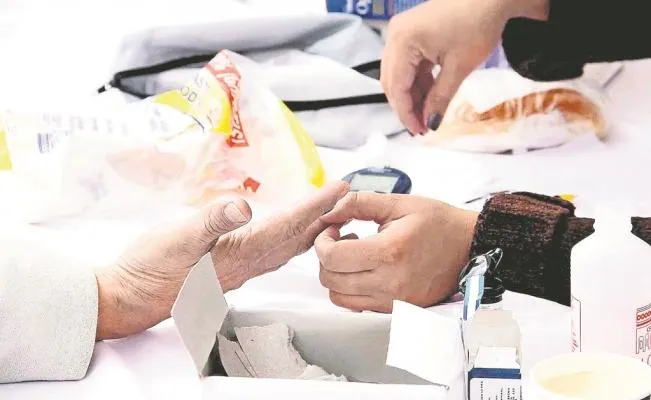Scientists from the National Autonomous University of Mexico (UNAM) developed a portable device that allows you to almost immediately detect insulin and glucose levels, to know if a person is prone to diabetes.
The device allows to generate hormonal profiles of patients that allow them to know if they have the possibility of developing diabetes or other problems such as infertility from a drop of blood.
It is a biosensor device that detects and quantifies the amount of molecules contained in a sample of body fluid such as blood.
This device combines two detection methods, the first is called "immunodetection" and allows you to use specific antibodies which compares with the molecules contained in the sample of each patient to know the levels of testosterone or prolactin insulin, among others, which exist in theblood of each patient;The other type of analysis is electrochemical which detects molecules such as glucose, cholesterol, creatinine, uric acid and triglycerides.
Through the analysis of the levels of this type of substance that each patient has in his body the treating doctor can help to diagnose if a person suffers, for example, diabetes.
"We are presenting a portable reader who could also work with a cell phone. The idea is to reduce the costs of multiple measurement of important molecules, give that technology to doctors and patients who need it, and thanks to micro -technology to reduce costsOf the compounds needed to carry out this type of measurement, "said Mathieu Christian Anne Hautefeuille, one of the project developers.
The biosensor is composed of a main body that contains deposits that communicate with each other by micro channels and which store the samples they are doing compared to the patient's blood.
It has a chip in which the patient deposits a drop of blood and that is responsible for comparing with the compounds that biosensor brings;It is this comparison that will allow measuring the amount of glucose for example or insulin that the patient's body is producing.
"On this device the idea would be to chop a drop of blood which progresses alone for each of the device channels and goes to different compartments in which glucose and insulin are going to be measured. The device is autonomous only needs theDrop of blood to make your measurements, the chip will be inserted later into a reader who is going to take on that data and throw the results to generate a report for the doctor if it is needed or if not for the patient, "he explained.
"One of the advantages is that you can do this test many times on the same day, a report is generating throughout the day and with this it gives your doctor enough data to know if you are not prediabetic or if you have aThyroid problem, "he said.
This device can help detect more quickly and precision if a person suffers from diabetes because it allows constant monitoring to see how it evolves, without forcing the patient to have to move to a laboratory and pay a test.
The chip can be washed to be used again by the same person, so it is not necessary to be buying several chips to do the tests.
In addition to domestic use, the device can help doctors in remote communities to more easily detect their patients who are at risk of developing diabetes to generate a medical follow -up plan and prevent the disease from being presented.
The technology itself allows the device to analyze pre -existing biological samples and compare them with patients.The team of the Faculty of Sciences that isDeveloping and will present it from 2018, it works that in addition to measuring glucose, insulin and hormonal profiles, in the future you can also work to detect other diseases such as cancer and HIV-AIDS.


